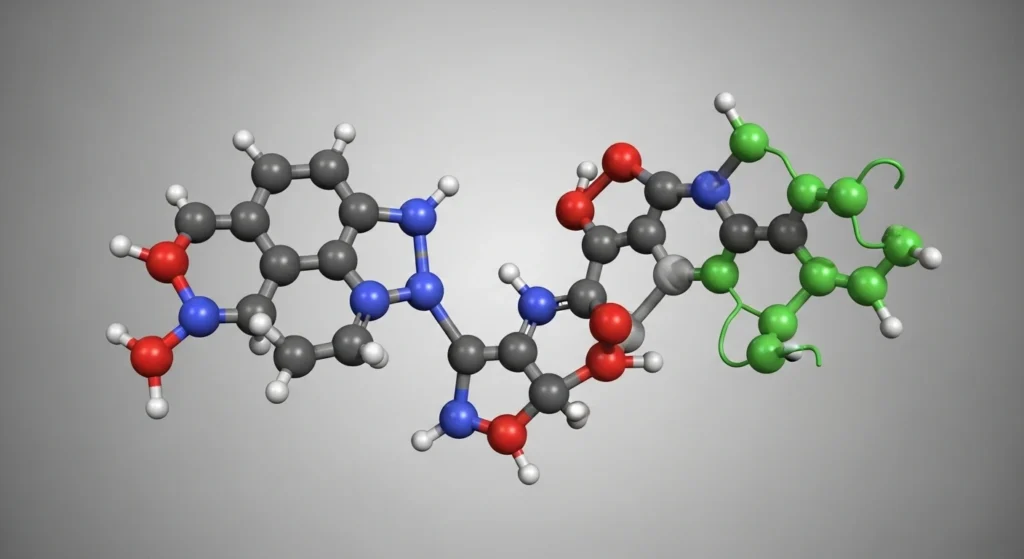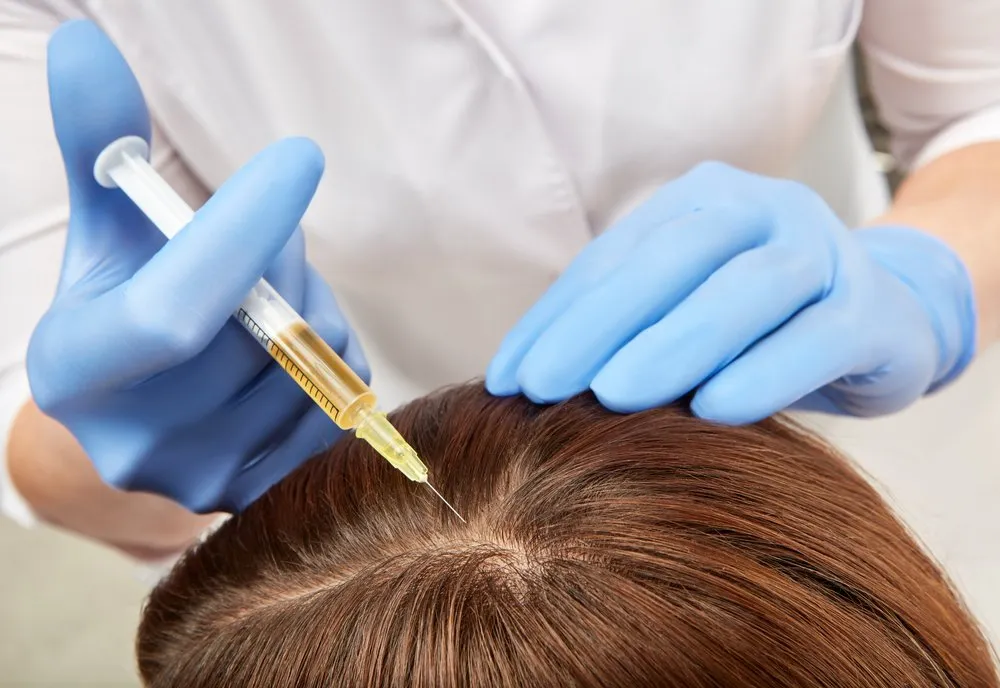If you’ve started taking Tirzepatide and noticed unusual hair shedding, you’re not alone. Does Tirzepatide cause hair loss is an emerging concern, especially among those using it for diabetes management or weight loss.
While not officially listed as a side effect, many people report increased shedding after starting the medication. In this guide, we’ll explain the possible link between Tirzepatide and hair loss, share expert insights, and offer practical tips to support healthy hair during your treatment.
What Is Tirzepatide and Why Is It Prescribed?

Tirzepatide is a new, dual-action injectable medication approved for treating Type 2 Diabetes and obesity-related weight loss. Marketed under the brand names Mounjaro and Zepbound, it works by mimicking two gut hormones—GLP-1 (glucagon-like peptide-1) and GIP (glucose-dependent insulinotropic polypeptide)—to regulate blood sugar levels and promote satiety.
Brand Names (Mounjaro, Zepbound)
- Mounjaro: Approved for Type 2 Diabetes
- Zepbound: Approved for weight management in obese or overweight adults
FDA-Approved Uses
- Control of blood glucose in adults with Type 2 Diabetes
- Chronic weight management alongside lifestyle changes
Mechanism of Action
Tirzepatide stimulates insulin release, suppresses appetite, and slows gastric emptying. This leads to significant weight loss, which—while beneficial—can have unexpected side effects, including temporary hair shedding due to nutritional or hormonal changes.
Can Tirzepatide Cause Hair Loss?
Is Hair Loss a Known Side Effect?
No, hair loss is not officially listed as a side effect in clinical trials for Tirzepatide. However, many users have reported it anecdotally, especially on platforms like Reddit and health forums. While not directly caused by the drug, indirect factors associated with weight loss or metabolic changes may play a role.
Reports from Patients and Real-World Users
Some patients on Mounjaro or Zepbound have shared concerns like:
- “My hair started falling out in clumps after 3 months.”
- “It’s thinning more than ever since I started losing weight rapidly.”
These experiences, though not universal, are common enough to warrant further investigation and support.
Indirect Causes: Weight Loss, Nutrient Depletion, Hormonal Shifts
- Rapid weight loss (more than 5–10% of body weight in a short period) can trigger telogen effluvium, a common form of temporary hair loss.
- Caloric restriction or poor nutrient absorption may lead to deficiencies in iron, zinc, protein, or biotin—all essential for hair growth.
- Hormonal shifts associated with fat loss may also disrupt normal hair growth cycles.
Understanding Hair Loss Mechanisms
Telogen Effluvium and Sudden Weight Loss
Telogen effluvium occurs when a large percentage of hair follicles enter the resting (telogen) phase prematurely. Triggers include:
- Sudden weight loss
- Emotional or physical stress
- Major dietary changes
Shedding typically begins 2–3 months after the triggering event and may last for 3–6 months.
Impact of Stress, Calorie Restriction, and Metabolic Shifts
- Stress from dietary changes and weight loss can increase cortisol levels, which may inhibit hair growth.
- Low protein intake can weaken hair shaft structure.
- Reduced iron and B-vitamin levels from calorie restriction are often linked to hair thinning.
Nutritional Deficiencies (Iron, Biotin, Zinc, Protein)
Ensure adequate intake of:
- Iron: Prevents anemia-related hair thinning.
- Biotin (Vitamin B7): Supports keratin infrastructure.
- Zinc: Promotes scalp health and hair tissue repair.
- Protein: Provides amino acids essential for hair fiber formation.
Is It Tirzepatide or Something Else?
Differentiating Medication-Induced vs. Lifestyle-Induced Hair Loss
Ask yourself:
- Did hair loss begin shortly after major weight loss?
- Have you experienced increased stress or changed your diet?
- Are you also on other medications (e.g., thyroid drugs, antidepressants)?
These clues can help determine if Tirzepatide is a contributing factor or simply coincidental.
Other Possible Culprits
- Thyroid dysfunction
- PCOS or hormonal imbalances
- Genetics (male or female pattern baldness)
How Long Does Hair Loss Last After Starting Tirzepatide?
Temporary Shedding vs. Long-Term Patterns
Most weight-loss-related hair loss is temporary. Once the body adjusts to the new weight and nutrient levels stabilize, hair typically regrows within 6–9 months.
Recovery Timelines and Regrowth Expectations
- Shedding peaks 2–3 months after weight loss
- Visible regrowth begins in 4–6 months
- Full recovery may take up to 12 months
How to Prevent or Reduce Hair Loss on Tirzepatide
Maintain Adequate Protein and Calorie Intake
- Eat 0.8–1.0g of protein/kg body weight daily
- Avoid overly aggressive calorie cuts
Take Multivitamins or Doctor-Recommended Supplements
- Consider iron, B-complex, zinc, and biotin after testing levels
- Consult a doctor before supplementing
Use Gentle Hair Care Routines
- Avoid heat styling, tight hairstyles, or harsh chemicals
- Use sulfate-free shampoos and conditioners
Work With a Dermatologist or Trichologist
- Request a scalp analysis or blood tests
- Discuss hair-supporting treatments like PRP therapy or minoxidil

Link to Relevant Medical Studies
- Clinical trials for Tirzepatide show no direct association with alopecia.
- Studies confirm weight loss–induced telogen effluvium as a common side effect of metabolic changes.
When to See a Doctor
Signs Your Hair Loss Needs Medical Evaluation
- Hair loss persists beyond 6 months
- Noticeable bald patches or sudden clumps
- Itching, inflammation, or scalp pain
Diagnostic Blood Tests
- Ferritin and Iron
- Thyroid Panel
- Vitamin D, B12, and Zinc
Referrals
- Dermatologist: For hair/scalp health
- Endocrinologist: If hormonal or metabolic issues are suspected
Expert Tips for Hair Health During Weight Loss
- Eat balanced meals: Include iron, protein, and healthy fats.
- Stay hydrated: Dehydration affects hair structure.
- Reduce stress: Meditation, journaling, or therapy may help.
- Topical support: Use scalp serums, gentle oils, or prescription treatments as needed.
Frequently Asked Questions (FAQs)
Does Mounjaro Make Your Hair Fall Out?
Not directly. Hair loss is more likely due to rapid weight loss, not the medication itself.
Will Hair Grow Back After Stopping Tirzepatide?
Yes, in most cases. Hair regrowth typically begins within a few months if underlying factors are addressed.
How Common Is Hair Loss With GLP-1 Medications?
It’s not officially listed but is commonly reported in online communities and forums.
Can I Take Biotin or Collagen While on Tirzepatide?
Yes, but consult your doctor to ensure the supplements are appropriate for you.
Are There Alternatives With Fewer Hair-Related Side Effects?
Other GLP-1 drugs (like semaglutide) may have similar effects. Managing side effects rather than switching medications is often more effective.
Conclusion: Should You Worry About Tirzepatide Hair Loss?
While tirzepatide hair loss is not a direct side effect, it’s a common concern due to the changes your body undergoes during rapid weight loss. Thankfully, this shedding is usually temporary and manageable with the right care and medical support. Always prioritize your overall health and consult specialists when in doubt.
Noticing hair thinning while on Mounjaro or Zepbound?Book a consultation with Dr. Rana Irfan in Islamabad today to protect your hair and your health during your weight loss journey.
Personalized hair loss evaluations and treatment options are available.
